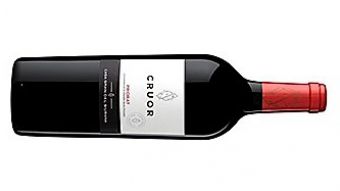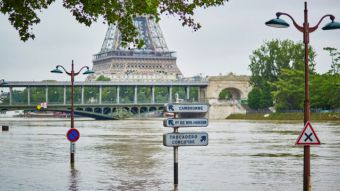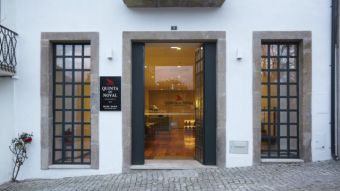Jean Leon: 60 years of a winemaking dream envisioned in Hollywood and realized in Penedès
Jean Leon launched his project in 1963 alongside the winemaker Jaume Rovira, who became the driving force of the winery. ‘Jean Leon’s legacy remains alive, making wines that express the character of each original vineyard,’ says Mireia Torres, Director of Jean Leon.
The Jean Leon winery is celebrating its 60th anniversary. What began as the winemaking dream of a successful restaurateur in Hollywood is, today, a small project in the heart of Penedès with a pioneering and innovative spirit and exceptional vineyards, that upholds the legacy of its founder, under the management of Mireia Torres.
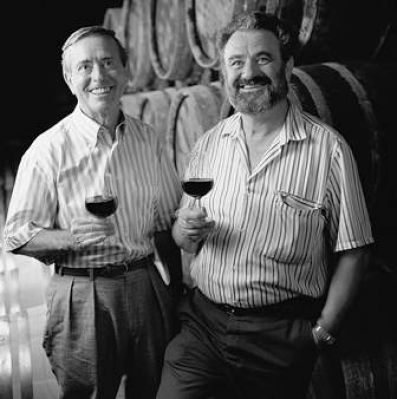 Jean Leon, born in Santander as Ceferino Carrión, arrived in the Penedès region intending to make a wine with his name for the clientèle of his restaurant La Scala, the place to be for all the celebrities of the day, such as Marilyn Monroe, Zsa Zsa Gabor, John F. Kennedy, Marlon Brando, and Robert Wagner. In 1963, he began planting the vineyard with the French varieties Cabernet Sauvignon and Cabernet Franc (followed by Chardonnay a few years later), opening his winery, built in the style of a château in Bordeaux, in November that year. He thus set out on his winemaking adventure – pioneering in many areas – alongside the winemaker Jaume Rovira.
Jean Leon, born in Santander as Ceferino Carrión, arrived in the Penedès region intending to make a wine with his name for the clientèle of his restaurant La Scala, the place to be for all the celebrities of the day, such as Marilyn Monroe, Zsa Zsa Gabor, John F. Kennedy, Marlon Brando, and Robert Wagner. In 1963, he began planting the vineyard with the French varieties Cabernet Sauvignon and Cabernet Franc (followed by Chardonnay a few years later), opening his winery, built in the style of a château in Bordeaux, in November that year. He thus set out on his winemaking adventure – pioneering in many areas – alongside the winemaker Jaume Rovira.
The first vineyard, planted in chalky clay soil, was given the name ‘La Scala’, the same as his restaurant, which is where the entire first vintage, 1969, was sent. It was the first Spanish wine made primarily from Cabernet Sauvignon and labelled as such. This Gran Reserva wine later came into the limelight when Ronald Reagan, who knew Jean Leon personally, selected the 1975 vintage for his presidential inauguration dinner in 1981, together with Jean Leon’s Chardonnay – one of the first barrel-fermented Chardonnays in Spain – which hailed from the Gigi vineyard named after Jean Leon’s daughter.
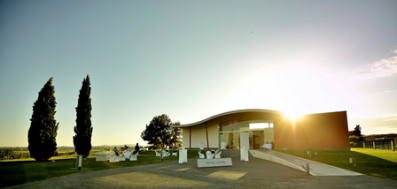 Besides La Scala and Gigi, Jean Leon planted two other vineyards: Le Havre, in reference to the French port where he embarked in 1949 as a stowaway in search of the American dream, and Palau, in homage to his city of birth. This was the final vineyard he planted, in 1991. Three years later, after being diagnosed with terminal cancer, he decided to transfer his legacy to the Torres family, with the aim of carrying on the winery and preserving the personality and unique identity of the wines that bear his name. Jaume Rovira remained as the winery’s winemaker until his retirement in 2008, and he would always continue to be linked to the project. He passed away on 7 December 2021.
Besides La Scala and Gigi, Jean Leon planted two other vineyards: Le Havre, in reference to the French port where he embarked in 1949 as a stowaway in search of the American dream, and Palau, in homage to his city of birth. This was the final vineyard he planted, in 1991. Three years later, after being diagnosed with terminal cancer, he decided to transfer his legacy to the Torres family, with the aim of carrying on the winery and preserving the personality and unique identity of the wines that bear his name. Jaume Rovira remained as the winery’s winemaker until his retirement in 2008, and he would always continue to be linked to the project. He passed away on 7 December 2021.
Now, Mireia Torres – the winery’s director since 2010 – not only continues to make the wines created by Jean Leon, she does so in a way worthy of the top distinction awarded by the Government of Catalonia: the Vi di Finca (single vineyard) certification. Jean Leon is the first winery in Penedès and the second in Catalonia to achieve this distinction. The wines are characterized by an ‘outstanding ageing’ that the winery’s director attributes to ‘the soil pH and the climate’.
At Jean Leon, there is a cellar with some of the historical vintages of these wines, such as the early vintages of La Scala Gran Reserva, which are opened on special occasions. Torres explains that ‘at that time, the wines had a more vegetal character, which is also an indicator of the climate and how consumer trends have evolved. Despite this evolution, Jean Leon’s legacy remains alive, making wines that express the character of each original vineyard’.
Over the years, the winery has been incorporating advances in winemaking as well as adding other wines with the same artisanal and innovative spirit shown by Jean Leon. This is the case of the 3055 range, which includes the first wine made with Petit Verdot in the DO Penedès appellation as part of a blend with Merlot, as well as the Nativa range, featuring indigenous varieties such as Xarel·lo, and the limited collection of experimental wines, which this year will include a wine made with the ancestral variety Forcada.
In addition to the commitment to innovation, sustainability and the fight against the climate emergency are also key aspects for Jean Leon today. Regenerative viticulture techniques are used in the vineyards – certified organic since 2012 – not only to recover the fertility of the soils and stop erosion but also as a measure to capture atmospheric CO2 and reduce the effects of global warming. Field trials are also carried out, related to reducing plant protection products and other challenges that winegrowing is currently facing.


